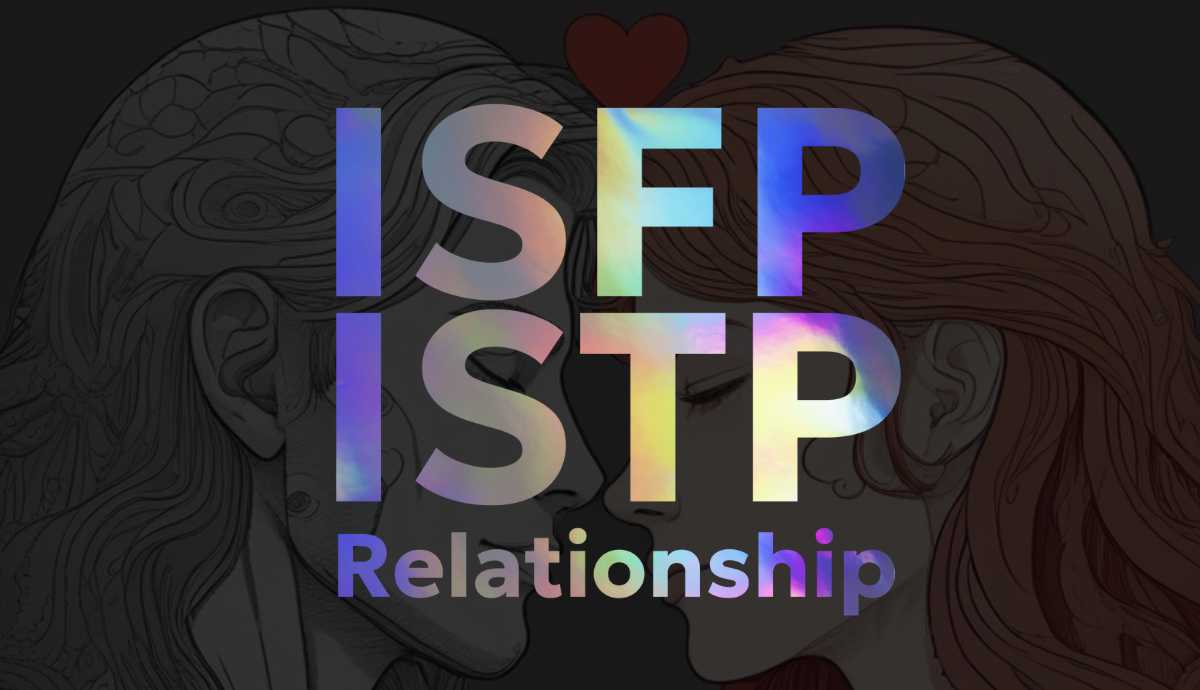Cognitive biases are a natural by-product of the limitations in our perception and cognitive processing. In many cases, cognitive biases allow us to make decisions more quickly and correctly even if they are predicated on faulty logic or info.
It may be difficult for an individual to recognize their own cognitive biases as they often operate under the guise of what is believed to be rational reasoning. Cognitive biases skew choices and cosign ideas that are not rational or in concord with reality. Here is an assessment of the cognitive biases each Myers-Briggs type is likely to exhibit.
INFJ – The Sunk Cost Fallacy
The sunk cost fallacy is described as an irrational commitment to an objective or goal that is no longer desired or worth pursuing, but is done so only because of the time and resources already invested into it. Rather than cut one’s losses and move on to other opportunities, emotional attachment accumulated from the effort and time invested toward it’s acquisition actually skews judgment making it more difficult to turn away even when it is in their best interests to do so.
INFJs are said to have difficulty breaking away from unhealthy relationships and have a tendency to hang on longer than they should. They may believe it is a rational decision to avoid throwing away the time and energy already invested in a person but in reality, INFJ’s sentimental idealism may be obscuring them from seeing the truth .
INFP – The Backfire Effect
The backfire effect is when in response to criticism or challenges to one’s beliefs an individual then doubles down and believes them even more strongly. INFPs on account of their Fi can be stubborn and rebellious and are bound to have some deeply held core values that would be difficult to change. It is likely that for many of their personal values, INFP would be highly resistant to anyone’s attempts at reforming or restricting them.
What is ‘true’ or ‘right’ to them may defy or transcend conventional standards or strictly empirical ones. Because of their sense of integrity and desire to be true to themselves, there are likely to be some things, however irrational, that INFP is unwilling to compromise on and any opposition against them may only fortify their convictions rather than weaken them.
INTJ – Fundamental Attribution Error
This bias describes the tendency to make ungenerous assumptions about other people’s behavior and actions while rationalizing one’s own behavior in a more forgiving light. If an orderly person is struggling to manage their schedule, they may rationalize that they have too much on their plate, but if they viewed the same struggle in someone else, they may possibly chalk it up to a lack of discipline.
INTJs have a penchant for reading into situations and past superficial appearances to make solid conjectures about them but with regards to people who under-perform, INTJs may be inclined to dismiss them uncharitably. INTJs can be judgmental and dismissive especially if they are more intellectually arrogant and unempathetic.
INTP – The Curse of Knowledge
The curse of knowledge refers to the tendency to forget what it was like to not know something once it has been learned. INTPs may be guilty of this as they may sometimes take for granted that others understand what for them appears obvious. INTPs may often explain things in a way that others don’t understand fully because they don’t see all the intuitive connections on which INTP has based their reasoning.
Once they form their conclusions or ideas, INTPs may forget the intricacy that went into their formation and when communicating them to others may need to remember to expound on certain details that are not as self evident as they think them to be.
ENFJ – Optimism Bias
The optimism bias is just as it sounds- an over-optimistic faith in favorable outcomes. ENFJs are idealists and as such they believe strongly that good will always triumph over evil. Even in face of set backs and struggles, ENFJs are determined to find the silver lining in clouds and they try to teach others to do the same.
It is admirable that ENFJ is able to cling so tenaciously to hope, but maybe they sometimes do so to the extent of verging on being delusional and in denial over the truth. ENFJs. ENFJs are committed to their ideals, but it is also important to be realistic and not sugar coat or set their expectations too high especially since not everyone is able to bounce back from disappointments as well as they can.
ENFP – The Halo Effect
The halo effect refers to the influence of how we feel about someone or something in one area has on how we judge them in other areas. A convicted felon who happens to be very attractive or famous for example, may receive more favorable treatment or a lighter sentence than someone viewed as less attractive. A successful TV personality on account of their popularity may be favored to run the country as president than other more politically experienced and qualified candidates.
This type of subjective bias may be something in which the idealistic ENFP is guilty of. ENFPs may have a tendency to see their friends and trusted associates in an almost unconditionally positive light and their idealistic faith and loyalty to them could maybe blind them from the actual short comings and personal flaws in their character.
ENTJ – Anchoring
Anchoring refers to the influence that our initial judgments have on subsequent perceptions. If an art dealer offered a painting to you for $500, that price may seem excessive. But if the dealer had preceded that offer with an even higher one such as $10,000, well then the $500 would seem relatively reasonable. ENTJs are likely to use this bias against other people rather than fall victim to it themselves. ENTJs are typically very articulate and skilled in communicating in effective, and persuasive ways. They may employ their powers of manipulation to play with people’s perceptions and ultimately get them to do what the ENTJ wants them to.
ENTP – Reactance
Reactance is the inclination for doing the opposite of what is expected of you. ENTPs are notorious for their contrarian tendencies and playing devil’s advocate. If you make one point, an ENTP will try and poke holes in your argument even if they actually agree with you. They pick debates the way bullies pick fights, but maybe ENTPs sometimes take it too far. ENTPs may try to assert their independence and sense of individualism by going left when other people tell them to go right. Their non-conformist nature is what makes them so creative and interesting but sometimes it’s also good to just stick to the script.
ISTJ – The Dunning-Kruger Effect
It often goes that with the more knowledge you acquire, the more aware you become of how much you don’t know. In many cases it is the people with the least understanding who overestimate their knowledge. ISTJs are inclined to collect extensive knowledge about whatever it is they take interest in and they are probably one of the most thorough and assiduous types with regards to research and knowledge building.
But with Ne as their inferior function, ISTJs may have a hint of awareness regarding the potentially infinite field of things they have yet to understand. ISTJs are typically certain of what they know because they have good memories and practice what they do. However, when it comes to anything outside of their practicing knowledge that may require conceptual leaps and theorizing, ISTJ will likely tread cautiously and waver in their convictions.
ISFJ – The Availability Heuristic
The availability heuristic refers to how the emotional strength or recentness of a memory can heavily influence our perceptions and cause us to perceive objects or events as being more eminent or important than they really are. A sensitive feeling type such as ISFJ is likely to perceive threats and emotionally charged situations in a more heightened way. Their memories are likely to be very strong, especially with respect to how they make ISFJ feel.
Their subjective feeling about many things is likely to make them prone to unfounded worries and concerns and exaggerated perspectives. ISFJs may have a propensity for relying on their first impressions and initial notions which may often be predicated on sensationalized or incomplete information.
ESTJ – Confirmation Bias
Confirmation bias is the tendency to seek only information and ideas that support one’s preexisting beliefs. People who display confirmation bias seem to cast a blind eye or show willful ignorance of the holes and flaws in their ideas and beliefs. They are either in denial or feel so strongly in their convictions that any criticism or counter argument would seem irrelevant or of marginal importance in their minds.
ESTJs could be guilty of this as they have a tendency to believe they are always right. ESTJs can be stubborn in what they believe. This may be in part because they are uncomfortable with change and have little patience and tolerance for those who do not share their views and beliefs.
ESFJ – Groupthink
Groupthink bias refers to the tendency to adapt, subordinate and tailor one’s views to accord with the social dynamics of a group. ESFJs being harmony-focused individuals who value community and connectedness, are inclined to fashion themselves to fit whatever form that will win them social points and acceptance. ESFJs tend to lack a strong internal value system and instead tend to model themselves in the image of their surroundings.
For this reason they may be guilty of jumping on the bandwagon of popular opinion to earn brownie points and show that they’re “with it”. They often profess conventional wisdom and ideas that deep down they may not even understand or embody.
ISTP – Gambler’s Fallacy
The gambler’s fallacy refers to the mistaken notion that a streak of good luck or bad luck impacts the odds future bets when in reality they remain the same. ISTPs enjoy their share of risk taking and living on the edge and many may have a taste for gambling and betting. Since they can get caught up in the moment, they may be susceptible to the irrational but hard to resist temptation to push their luck when experiencing a string of wins. When they get on a roll, ISTPs may feel emboldened to ride that wave longer than they probably should.
ISFP – The Barnum Effect
The Barnum effect is what happens when we interpret specific validating details out of vague ambiguous statements. When we construe a general statement that could apply to anything or anyone as having a very particular and pointed meaning. The most common examples of this may be horoscopes and psychic readings and possibly even the MBTI.
People with this bias don’t realize that they are validating baseless statements by filling in the gaps themselves. ISFPs with their Fi-Ni may be susceptible to naively drawing false conclusions and connecting dots that shouldn’t be connected. Because ISFPs are creative and open minded, they may be susceptible to believing in unrealistic and irrational suggestions and the ploys of conniving grifters.
ESFP – The Framing Effect
The framing effect refers to the influence that the way in which information is presented has on how it is received. It is possible to influence how receptive or unreceptive a person will be to a proposition or message based on how it is presented to them. ESFPs may be susceptible to this since they are so responsive to sensory stimulation and style. ESFPs have strong preferences and feelings about what they like and don’t like. They may be very suggestible and susceptible to the appeals of clever sales pitches and marketers.
ESTP – Self-Serving Bias
The self serving bias is described as a tendency to conveniently cast blame on other people or circumstances for one’s own failures while readily taking all the credit for the successes. This type of bias stems from the ego’s desire to protect and exalt itself. ESTPs are very active and ambitious and with each accomplishment they make, their egos may grow commensurately.
Because they are competitive and always in it to win it, they may react to failures and losses as though it were a threat to their self worth. ESTPs may therefore be guilty of having a lopsided sense of accountability that is heavily biased towards preserving their own self image and self interests.
- related posts:
- The Logical Fallacy You Likely Use Based On Your Myers-Briggs Type
- The Mental Illness Of Each Myers Briggs Type
- INTJ Depression Causes and Symptoms
- 7 Major Weaknesses of the INFJ Personality
- 6 Excellent Career Matches For INFJs
- The MBTI Types When They’re 100% Done With You
- What Each MBTI Type Does When They Have A Crush
- Personal Growth For Each Myers Briggs Personality Type
- The Defense Mechanism Each MBTI Personality Is Likely to Use
source: https://yourbias.is/
Want to know your astrology placements? You can generate your astrology chart here with our free birth chart generator tool.
- ESTP and ESFP in love: 6 Dynamics of Their Relationship - September 4, 2024
- ISFP and ISTP in love: 5 Dynamics of their Relationship. - August 28, 2024
- ISFJ and ISTJ in love: 5 Essential Dynamics of their Relationship - February 24, 2024





